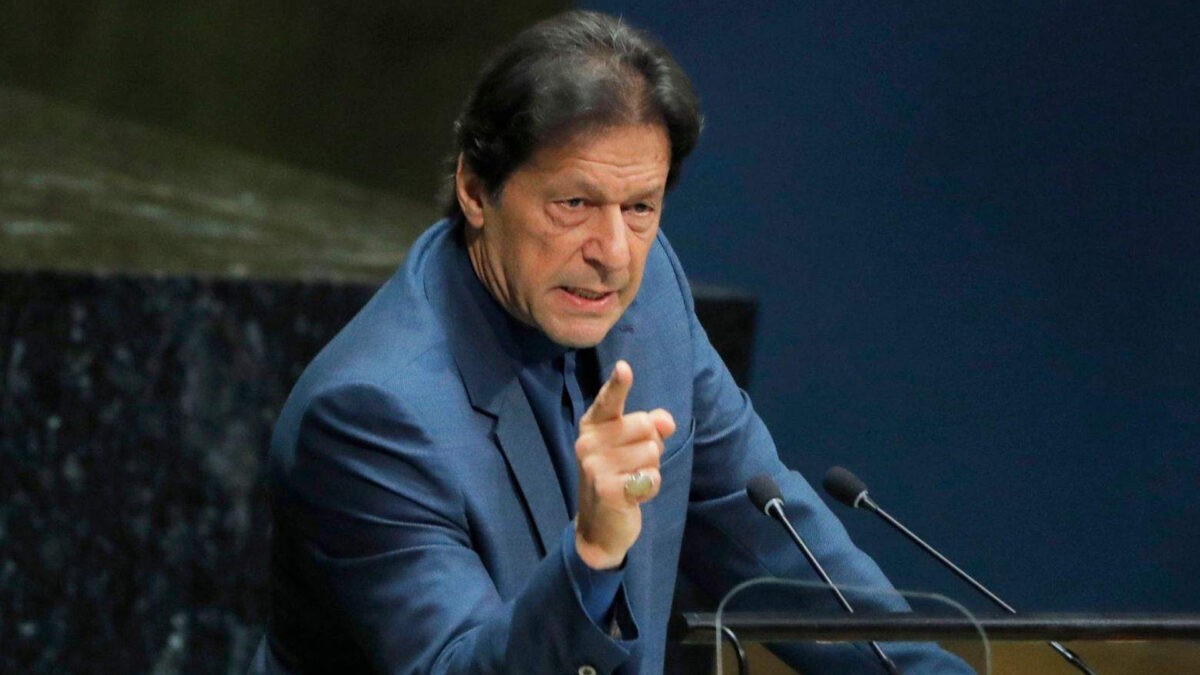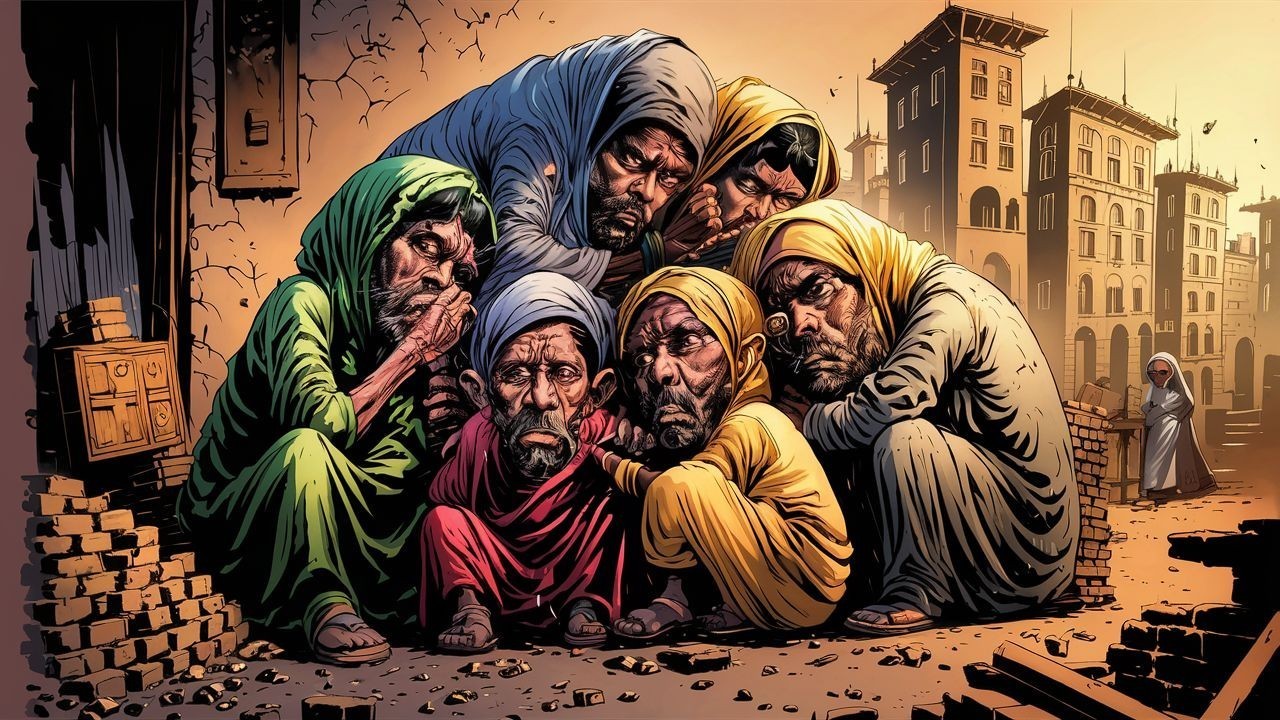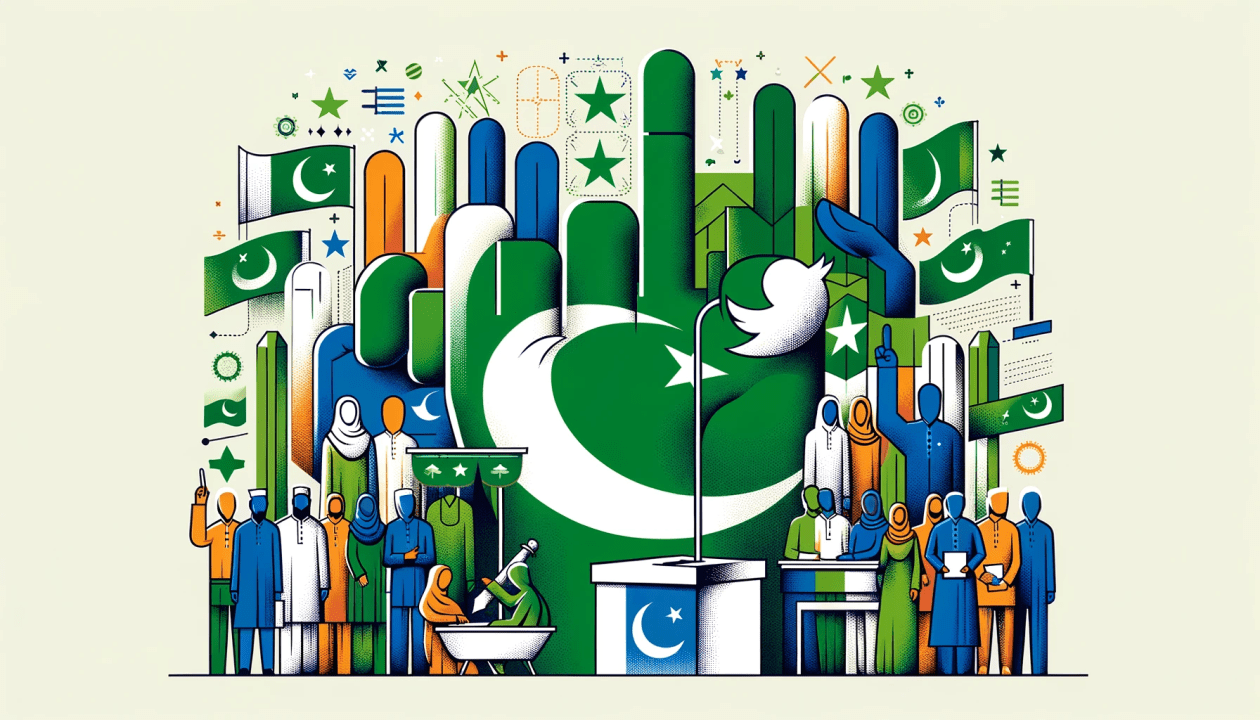Islamabad, Pakistan – As Pakistan strides into the new year, it finds itself navigating a complex web of challenges, with political instability, economic woes, and security concerns casting long shadows over the nation’s future. While the country has made strides in certain areas, deep-seated issues continue to impede progress and fuel uncertainty.1
Table of Contents
Political Landscape Remains Volatile
The political arena remains a battleground, with former Prime Minister Imran Khan‘s Pakistan Tehreek-e-Insaf (PTI) party locked in a fierce power struggle with the ruling coalition government. Khan, ousted from power in a no-confidence vote in 2022, continues to exert significant influence, mobilizing mass rallies and demanding early elections.
The government, led by Prime Minister Shehbaz Sharif, faces mounting pressure to address the economic crisis and maintain stability amidst growing discontent.

Adding to the political turmoil, the military establishment, a traditionally powerful force in Pakistani politics, faces increasing scrutiny. Khan’s accusations of military interference in his ouster have sparked debate about the military’s role in civilian affairs, further polarizing the political landscape.
Economic Crisis Deepens
Pakistan’s economy teeters on the brink, grappling with soaring inflation, dwindling foreign exchange reserves, and a depreciating currency. The devastating floods of 2022 exacerbated the situation, causing widespread damage and disrupting economic activity.
The government is engaged in crucial negotiations with the International Monetary Fund (IMF) for a bailout package, but securing much-needed financial assistance hinges on implementing tough economic reforms.
The rising cost of living has hit ordinary Pakistanis hard, with many struggling to afford basic necessities.3 The government’s efforts to control inflation and stabilize the economy have yielded limited results, fueling public frustration and raising concerns about social unrest.
Security Challenges Persist
Despite significant gains in recent years, security remains a pressing concern. The Tehrik-i-Taliban Pakistan (TTP), an umbrella group of militant organizations, has intensified its attacks, targeting security forces and civilians alike.4 The porous border with Afghanistan poses additional challenges, with cross-border infiltration and the resurgence of the Afghan Taliban raising fears of increased instability.
The government has vowed to crack down on terrorism and enhance security measures, but the complex nature of the threat and the evolving regional dynamics make it a formidable task.
Climate Change Threatens Future
Pakistan is highly vulnerable to the impacts of climate change, as evidenced by the catastrophic floods of 2022.5 The country faces increasing risks of extreme weather events, water scarcity, and agricultural disruptions.6 Addressing climate change is crucial for Pakistan’s long-term sustainability, but the country requires significant financial and technical assistance to adapt to the changing climate and mitigate its adverse effects.7
A Glimmer of Hope Amidst Challenges
Despite the daunting challenges, there are glimmers of hope. Pakistan’s youthful population, its strategic location, and its untapped potential offer opportunities for growth and development. The country’s burgeoning IT sector, its growing middle class, and its rich cultural heritage provide a foundation for progress.
However, realizing this potential requires addressing the underlying issues that impede progress. Political stability, economic reforms, and enhanced security are crucial for creating an environment conducive to growth and development.
The Road Ahead
Pakistan stands at a crossroads, facing a multitude of challenges that threaten its stability and progress.8 Navigating this turbulent landscape requires strong leadership, decisive action, and a collective effort from all segments of society.
The government must prioritize economic stability, implement structural reforms, and address the concerns of the common man. Political leaders must rise above partisan interests and work together to find solutions to the nation’s challenges. The military establishment must respect civilian supremacy and play its role within the constitutional framework.
The international community also has a role to play in supporting Pakistan’s efforts to overcome its challenges. Financial assistance, technical expertise, and diplomatic engagement are crucial for helping Pakistan achieve stability and prosperity.
The road ahead is undoubtedly challenging, but Pakistan has the resilience and potential to overcome its difficulties and emerge stronger. The coming years will be critical in determining the country’s trajectory, and the choices made today will shape its future for generations to come.
In-depth Analysis of Key Issues:
1. Political Instability:
- Roots of the Crisis: The current political instability stems from a complex interplay of factors, including deep-seated political rivalries, allegations of corruption, and the military’s influence in politics.9 Imran Khan’s ouster and his subsequent campaign for early elections have further polarized the political landscape.10
- Impact on Governance: The political turmoil has hampered effective governance, delaying crucial decisions and hindering the implementation of much-needed reforms.11 The constant power struggles and political maneuvering distract from addressing pressing issues like the economic crisis and security challenges.
- Potential Solutions: A return to political stability requires a commitment to democratic principles, respect for the rule of law, and a willingness to engage in constructive dialogue. All political stakeholders must prioritize national interests over partisan agendas and work towards a consensus-based approach to governance.
2. Economic Crisis:
- Underlying Causes: The economic crisis is rooted in structural weaknesses, including a narrow tax base, low productivity, and dependence on imports. External factors like the global economic slowdown and the war in Ukraine have further exacerbated the situation.
- Impact on Society: The economic hardship has disproportionately affected the most vulnerable segments of society, pushing millions into poverty and fueling social unrest. The rising cost of living, unemployment, and lack of opportunities have created a sense of despair and frustration among the masses.
- Way Forward: Addressing the economic crisis requires a comprehensive approach that includes fiscal discipline, structural reforms, and investment in human capital. Diversifying the economy, promoting exports, and attracting foreign investment are crucial for sustainable growth.
3. Security Challenges:
- Evolving Threat Landscape: The security situation in Pakistan remains complex, with both internal and external threats posing significant challenges.12 The resurgence of the TTP, the porous border with Afghanistan, and the evolving regional dynamics require a multi-faceted approach to security.
- Impact on Stability: The persistent security threats undermine stability and deter investment, hindering economic growth and development. The fear of terrorism and violence also affects the daily lives of ordinary citizens, limiting their freedom and creating a sense of insecurity.
- Strategies for Security: Enhancing security requires a combination of military operations, intelligence gathering, and addressing the root causes of extremism. Strengthening border security, improving coordination with neighboring countries, and promoting dialogue and reconciliation are essential for long-term stability.
4. Climate Change:
- Vulnerability and Impact: Pakistan is highly vulnerable to the impacts of climate change, facing increasing risks of extreme weather events, water scarcity, and food insecurity.13 The 2022 floods served as a stark reminder of the devastating consequences of climate change.
- Adaptation and Mitigation: Addressing climate change requires a two-pronged approach: adaptation to the changing climate and mitigation of greenhouse gas emissions. Pakistan needs significant investments in infrastructure, technology, and capacity building to adapt to the impacts of climate change.14
- International Cooperation: Climate change is a global challenge that requires collective action.15 Pakistan needs support from the international community in terms of financial assistance, technology transfer, and capacity building to effectively address climate change.16
Conclusion:
Pakistan faces a multitude of challenges, but it also possesses the resilience and potential to overcome them. Addressing these challenges requires strong leadership, decisive action, and a collective effort from all segments of society.
By prioritizing economic stability, enhancing security, and addressing the impacts of climate change, Pakistan can pave the way for a more prosperous and secure future. The international community must also play its part in supporting Pakistan’s efforts to achieve stability and development.
The road ahead may be arduous, but with determination and unity, Pakistan can overcome its challenges and emerge stronger.


















